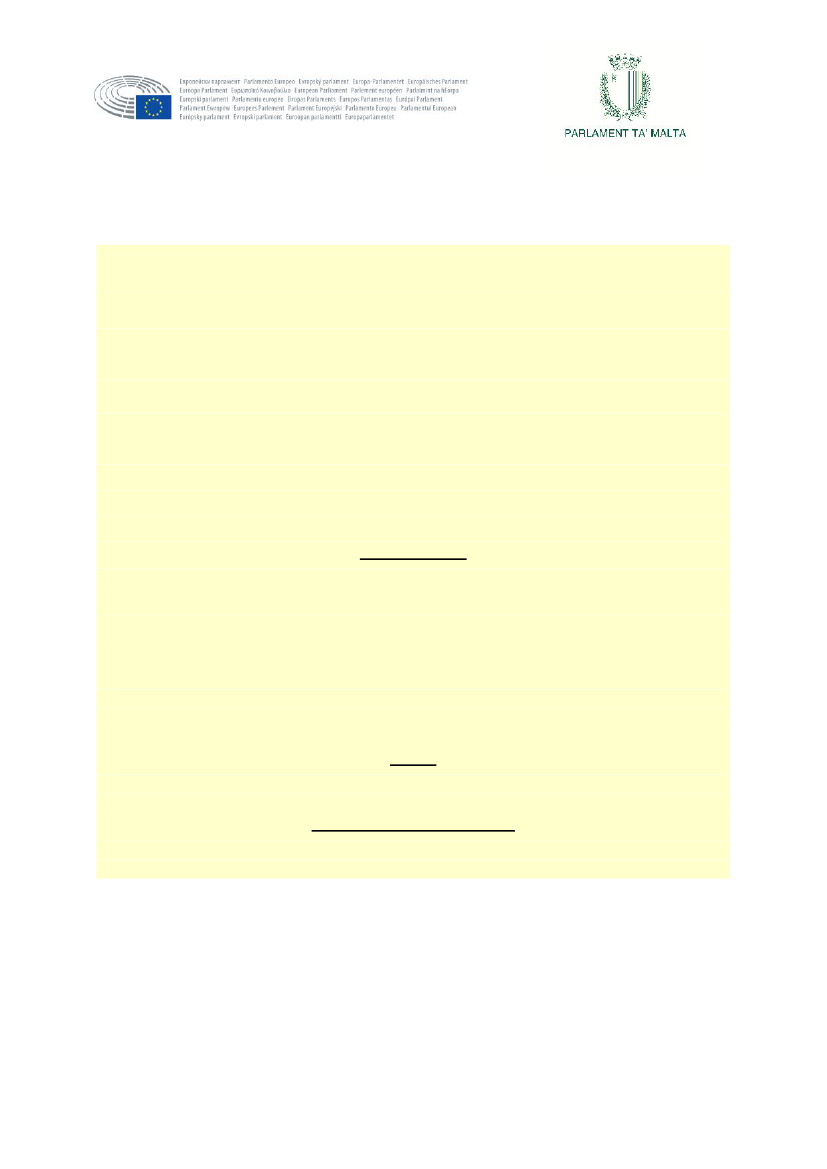
(Draft dated 06/12/2016)
DRAFT AGENDA
European Parliamentary Week 2017
- European Semester Conference -
- Interparliamentary Conference on Stability,
Economic Coordination and Governance in the European Union -
European Parliament
Brussels, 30 January - 1 February 2017
Meeting rooms
- Monday, 30 January 2017 at 15.00 - 17.00 (Hemicycle)
- Monday, 30 January 2017 at 17.00 - 18.30 (Hemicycle)
-Tuesday, 31 January 2017 at 9.30 - 13.00 rooms PHS 3C050 / JAN 4Q1 / JAN 6Q2
-Tuesday, 31 January 2017 at 15.00 - 16.30 (Hemicycle)
-Tuesday, 31 January 2017 at 16.30 - 18.00 (Hemicycle)
-Wednesday, 1 February 2017 at 9.30 - 11.00 (Hemicycle)
-Wednesday, 1 February 2017 at 11.00 - 12.30 (Hemicycle)
Lunch
- Tuesday, 31 January 2017 at 13.00-15.00
Cocktail and walking dinner
- Tuesday, 31 January 2017 at 18.30